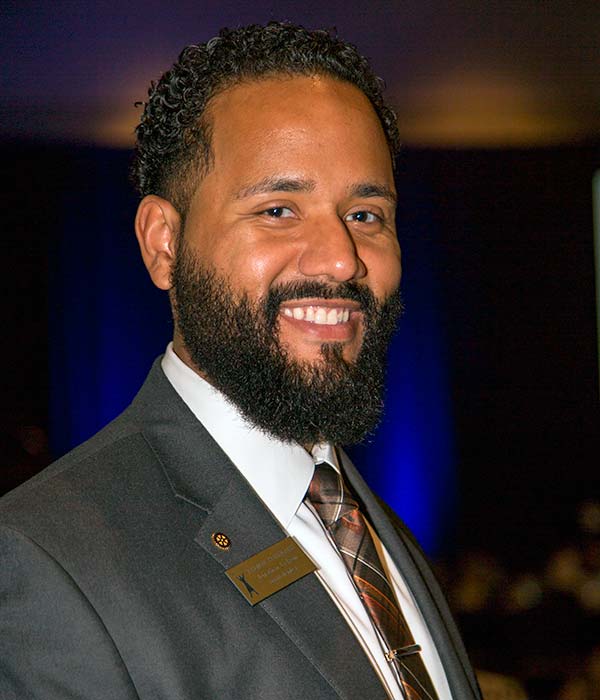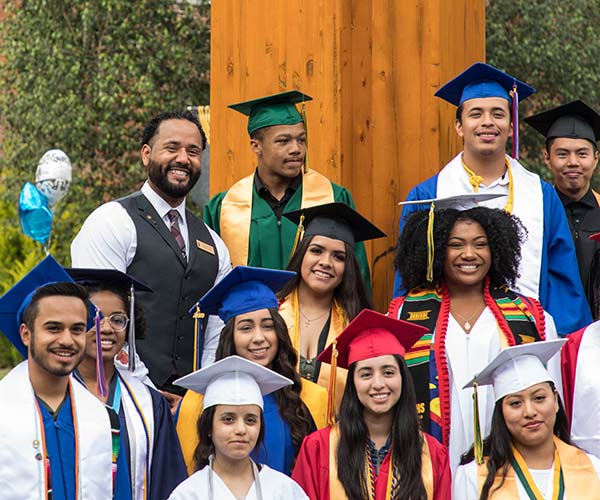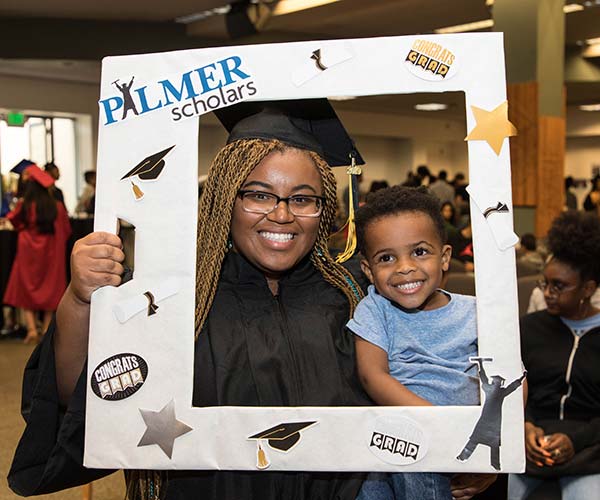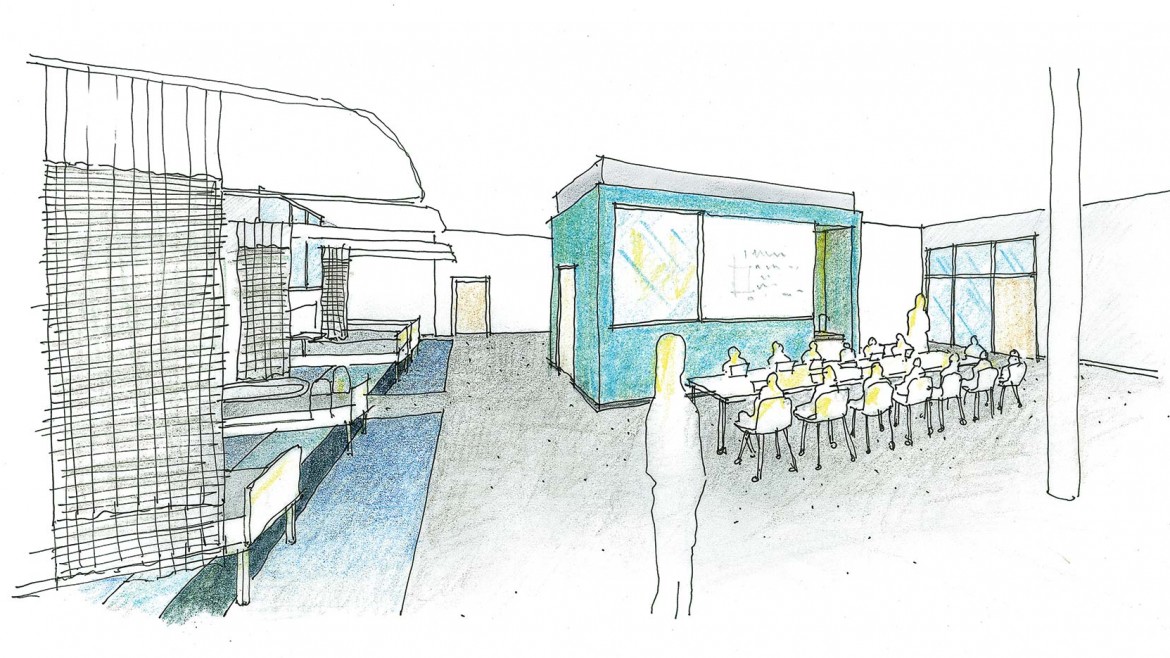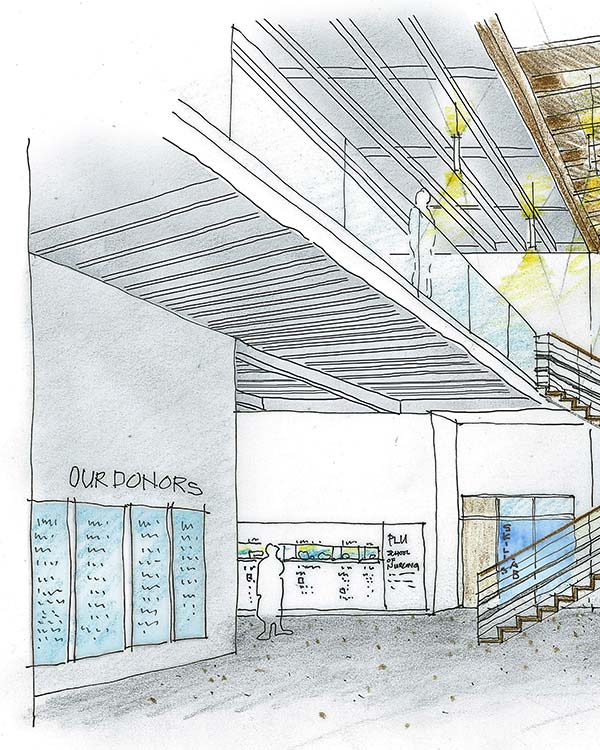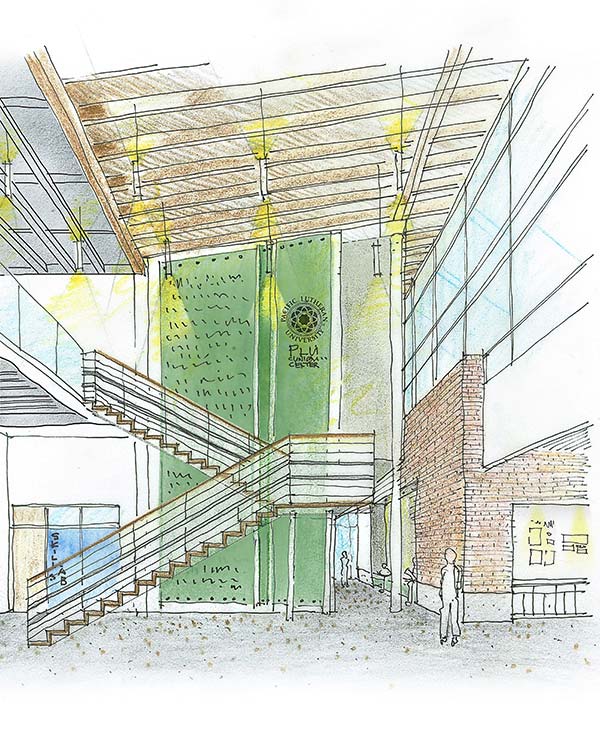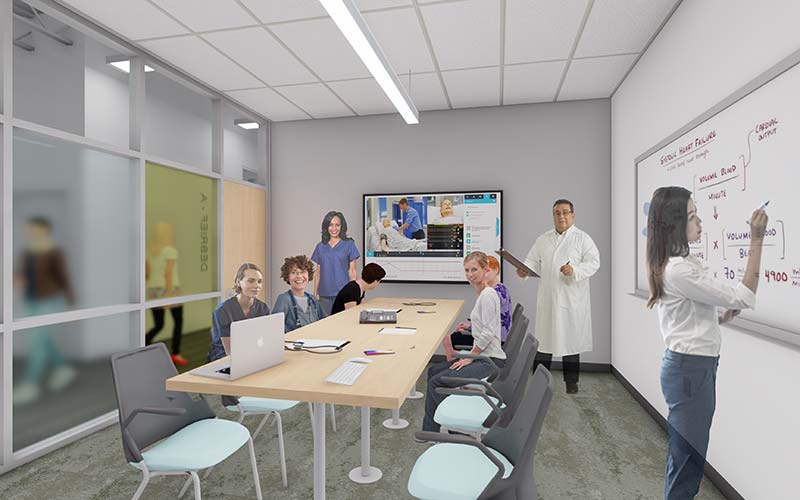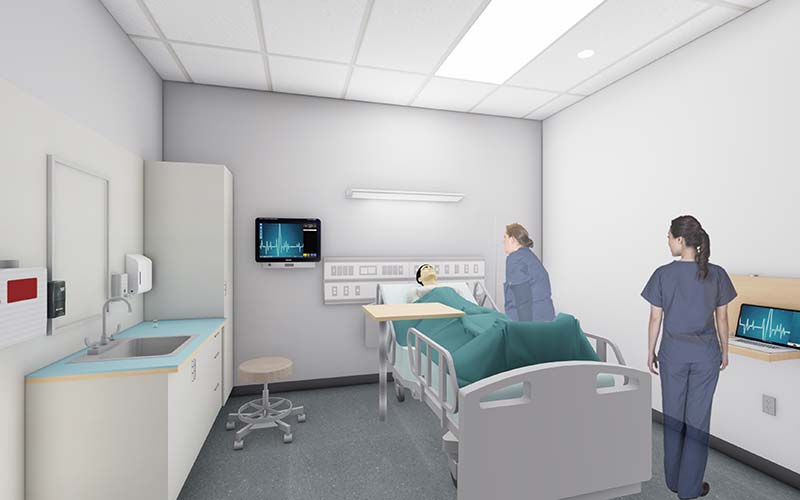Palmer Scholars
Alumni Board member Jonathan Jackson ’12 leads the Tacoma-based organization
In a sea of flowing red, white, green, blue and black, dozens of proud graduates clad in traditional caps and gowns make their grand entrance as Pharrell Williams’ song “Happy” fills PLU’s Scandinavian Center.
“Let’s get that applause going,” says a smiling Jonathan Jackson ’12, as he starts clapping for the Class of 2019 Palmer Scholars.
Jackson, a member of the PLU Alumni Board and a current MBA student at PLU, is executive director of Palmer Scholars. The organization was founded in 1983 by Tacoma businessman R. Merle Palmer to help low-income students of color in Pierce County achieve their dreams of a college education.
On this June Saturday, the scholars – recent high school and college graduates – are joined by their families, volunteers who serve as mentors for Palmer students and other supporters of the organization.
It’s part of an annual celebration for students who graduate with the help of Palmer scholarships, mentors and other supports.
In June, Jackson helped bring the Palmer graduation ceremony to PLU’s campus, with sponsorship from the university Office of the President, Alumni & Student Connections, Campus Ministry and the Admissions Office, along with the Puget Sound Educational Service District.
“This is our largest class of graduates ever,” Jackson said. A total of 24 Palmer Scholars graduated from college this year – including four from PLU. And 34 Palmer high school graduates are beginning their college journey, including five enrolling at PLU.
“These students aren’t successful because of us, they’re successful because of themselves,” Jackson said. “But we believed in them and supported them.”
PLU President Allan Belton addressed the assembled scholars and talked about his experience as the first in his family of eight children to graduate from college.
“As we graduate from high school or college, it’s important to think about the people who helped us get here,” he said.
For Belton, support came from a high school counselor who showed faith in his ability and urged him to take a college entrance exam and write a college application essay.
Knowing that someone is behind you — supporting you — makes a difference, he said.
“Congratulations to the families, friends and others who have supported these students,” he added.
PLU’s 2019 Palmer Scholars
PLU GRADS
Samantha Saucedo
Eunissa Satterwhite
Karen Davila
Kevin Castellanos
HIGH SCHOOL GRADS ENROLLED AT PLU THIS YEAR
Tabitha Johnson
Gianni LaFave
Abdulghani Nagi-Mosa
Whitney Perry
Moses Ramos
Several of the Palmer college graduates who celebrated at the June event were students Jackson recruited during his first sojourn with Palmer.
Jackson first got involved with Palmer Scholars in 2014, serving as a program director, mentor and board member.
He worked as executive director of the Fair Housing Center of Washington, director of development at the Foundation for Tacoma Students and several other nonprofit organizations before returning to lead Palmer Scholars in 2018.
Jackson, a Washington native, grew up just outside the gates of Joint Base Lewis- McChord in Tillicum and graduated from Clover Park High School in 2008.
He was one of the first group of Act Six Scholars – a national group providing scholarships and social justice leadership training for students – on PLU’s campus.
The program had profound impacts on his world view.
“For somebody in my situation, getting a full ride scholarship to attend PLU made it a financial reality,” he said. “If not for Act Six, I would not have been able to attend PLU.”
Part of the appeal of PLU was that it allowed him to “still be in my back yard, in my community.”
But as a trail blazing member of a group of students of color, Jackson also found challenges at PLU. A sociology major, he focused his capstone project on the academic experiences of students of color enrolled at predominantly white colleges.
“PLU has come a long way, both numerically and in terms of visible signs of commitment to diversity,” Jackson said.
It’s one reason he was drawn to membership on the alumni board.
“I think I can be part of changing that — making the experience less alienating for students of color who are following in my footsteps,” he added.
Who was Merle Palmer?
While in the U.S. Navy during World War II, R. Merle Palmer, a white man from Tacoma, served with sailors of color and was troubled by how they were treated. He observed that, no matter how well they executed their jobs, they received little recognition, their skills were ignored and they were seldom promoted in rank.
The injustice troubled him. After the war, he returned home and, with the help of the Rev. Al Davis, inaugurated the Eastside Community Church Minority Scholarship Fund with six students and limited funding.
The program incorporated in 1996. In 2003, the first Palmer Scholar earned a Ph.D and more than 400 degrees have been conferred on Palmer students over the years.
His passion for social justice and equity is a theme that runs through his work, which has focused on removing barriers and increasing access for traditionally underserved student populations.
The Palmer students, he says, “are what get me out of bed every morning, and what keeps me working long days.”
Eunissa Satterwhite ’19, said the financial assistance she received from the Palmer program made a difference.
“But it’s also the mentor, who is with you throughout your college years, and the college readiness classes in high school,” she said.
Palmer Scholars are initiated into the program as high school juniors. They attend one or more evening training classes each month, where they learn college readiness and life skills. During their senior year of high school, scholars are matched with a mentor and mentorship continues throughout their college years.
Satterwhite graduated this year with a degree in math and plans to return to PLU to complete her master’s degree in education.
Abdulghani Nagi-Mosa, who graduated this year from the International Baccalaureate program at Foss High School in Tacoma, plans to major in business administration at PLU and hopes to one day work for the FBI.
“My top choice was PLU,” said Nagi-Mosa, a native of Yemen. “I came on a college tour with a friend, and I could see the diversity they have. I could see students like me walking around.”
The Palmer program helped him — the first in his family to attend college — understand the college experience. He is also grateful for his Palmer mentor, Army Capt. Dan Zeller.
Zeller said he signed on as a Palmer volunteer mentor because he knows that high school “is a critical time in a person’s life, when you have got to make a lot of big decisions.”
“When I struggled in high school, he helped me,” Nagi-Mosa said of his mentor. “When I was about to stop thinking about college, he pushed me.”
Jackson said Palmer Scholars wants mentors who want to make an impact on the life of a young person by building a culture of trust, one-on-one, that will support a scholar throughout their college career.
“One of the things we do is provide scholarships,” he said. “But I like to talk about our program as a college success organization.”



